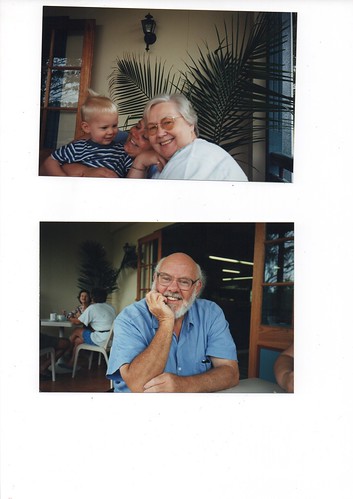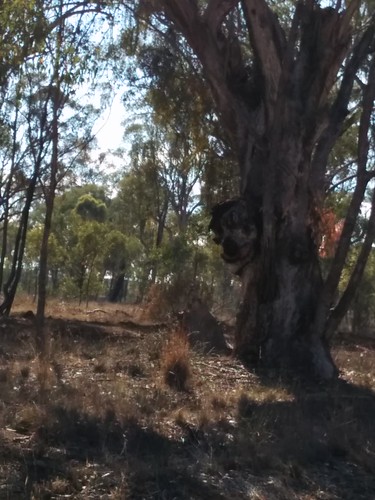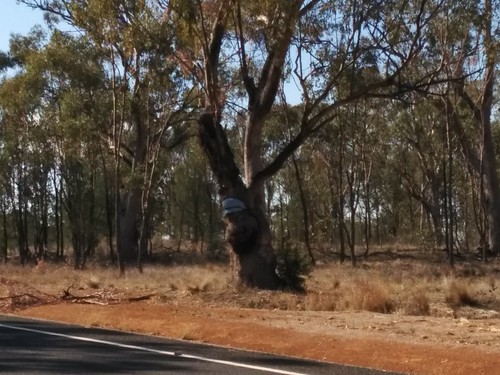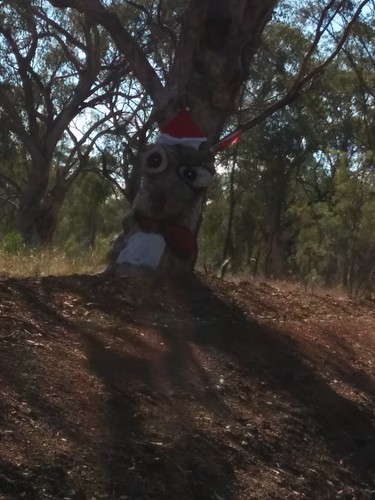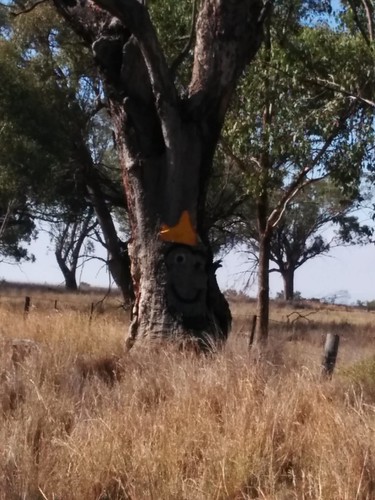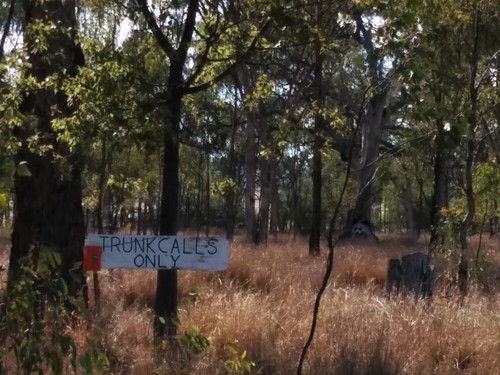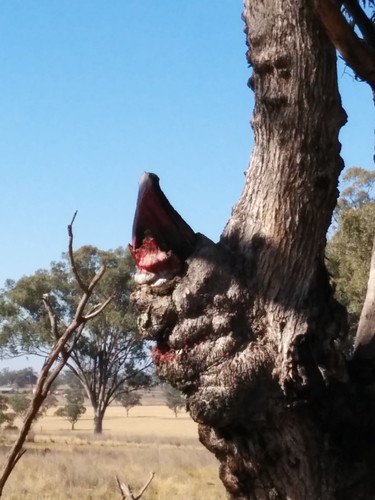Yesterday should have been Dad’s eightieth birthday. Last year I called him to wish him a happy birthday and it became obvious over the course of the conversation that he had no idea who I was. I ended up sleeping for most of that long weekend. I don’t know why anniversaries like this are so painful, although I know it’s a common enough sorrow. This one comes only two weeks after another terrible one, the day of Mum’s diagnosis in August of 2013.
So I’ve been cranky as hell, and I booked us a trip for Alain’s last weekend without really thinking about it – a night in a hotel near the aquarium in Monterey and a kayak trip on Elkhorn Slough. We got to the aquarium right when it opened and had it almost to ourselves for the first couple of hours. I showed Alain the Open Sea tank and the kelp forest. “Science church,” I said.
The Pacific giant octopus was awake and clambering over the glass. I crouched down at eye level and we looked at each other, mind to alien mind. The children had to drag me away. The bat rays in the touch tank were active as well, jumping out of the water to make eye contact. I stroked their satiny skin.
What makes Monterey Bay so spectacular is a mile-deep undersea canyon that terminates in Moss Landing. Also in Moss Landing: Elkhorn Slough, the largest tract of tidal saltmarsh in California outside the San Francisco Bay. It’s what the bay must have been like in the Before Time (before Europeans, I mean; maybe we Westerners love post-apocalyptic fiction because we are the goddamn apocalypse.) The water dances with seals and otters and fish. The sky is so thick with birds that they look like a mist.
Elkhorn Slough also supports a thriving colony of humans bumbling around in brightly-colored kayaks, and yesterday we were among their bumber (I meant to say number, but who am I to turn down a serendipitous typo?) Our tour guide Jon gave us a good, thorough orientation. When we all said we’d like to see sea otters, he said presciently: “Our real problem’s going to be staying out of their way,” and gave us some tips on what to do if wildlife approached too closely, which I apparently promptly forgot.

We visited these harbor seals first and they worried me even as they made me laugh, swimming under and around our kayaks and popping their silky heads out of the water, the glassy meniscus splitting over their sweet faces like a caul. Then we paddled by a raft of sea otters – at least thirty, probably more, about 1% of the global population. Everywhere we paddled, otters followed. My face ached from smiling at them.
We went under the bridge into the wetlands and saw terns dropping out of the sky, then flying out of the water with bright pilchards in their beaks, gulping as they flew. Stately brown pelicans sailed like galleons.
Fighting the tide to get back to the beach, we paddled near a pair of younger otters that fought and played in the water, an aquatic Alice and Thimble, jumping and Loch-Ness-Monstering joyously. We tried to stay out of their way but as we turned for home, one of them popped up and looked me straight in the eye. It swam boldly over to my kayak, slipping through the water like a thought, and climbed aboard.
I froze. I couldn’t remember anything Jon had told us to do. I am so used to talking to domestic animals that I said, inanely: “No, otter, you can’t be here.” It appeared to find this remark hilarious. It had clever hands and eyes full of mischief and pale whiskers. Its fur was so dense!
I’ve never been so close to a wild creature. I loved it with every particle of my being. With infinite reluctance I turned my back and started paddling. I felt its steady weight slide off the back of my kayak. Then it swam over to Alain’s kayak and clambered on.
“Splash at it!” said Jon, and paddled over to splash at it, whereupon it slipped off and climbed onto Jon’s kayak! He splashed it again and it swam back to me.
“Oh no you don’t,” I said, not wanting to be in violation of Federal laws against interfering with protected wildlife, and splashed my paddle in its adorable face. It frowned at me crossly and swam away.
“That doesn’t happen very often,” said Jon. But not never.
And I thought my face had ached from grinning before.
As you know, Bob, California is a bona fide motherfucking paradise. I’ve seen coyotes hunting in Orinda and Woodside and bobcats trotting purposefully across the Marin Headlands. I’ve seen elephant seals and sea lions and dolphins and whales. I’ve seen more raccoons and squirrels and mule deer and jackrabbits and scrub jays and hummingbirds and herons and egrets and turkey vultures and red tailed hawks than I can easily remember. But I will never forget my otter.
I’ve driven past the big-ass formerly-coal-fired now-natural-gas-fired power station at Moss Landing dozens of times but until two weeks ago I had no idea what this place even was. A chance remark at Jamey’s barbecue prompted me to look it up and book the trip. The protected area is relatively new in the scheme of things, where by scheme of things I mean the huge marine sanctuary that stretches from the Golden Gate to Hearst Castle. The Nature Conservancy started buying up land around Elkhorn Slough in 1971, and donated it to a foundation in 2012.
In the future I hardly dare let myself hope for, all our power comes from cheap solar and the highway traffic is autonomous Tesla art cars. Our food is grown in clean room farms. The cities are dense and green like forest meadows and the Marine Reserves and Protected Areas join up with the National and State Parks into one vast patchwork quilt of wildlife habitat. I’m more grateful than I can say for all the conservationists and scientists and docents and donors working towards that future. I’m glad Daddy raised us all in science church, and I’m glad he was our Dad.

